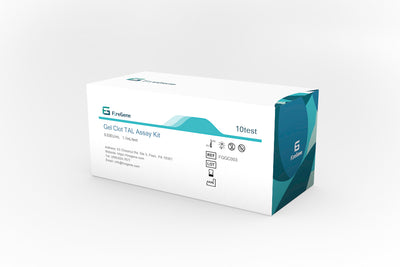
# Gel Clot Endotoxin Test Kit for Bacterial Endotoxin Detection
## Introduction to Bacterial Endotoxins
Bacterial endotoxins, also known as lipopolysaccharides (LPS), are toxic components found in the outer membrane of Gram-negative bacteria. These substances can cause severe reactions in humans and animals when introduced into the bloodstream, making their detection crucial in pharmaceutical and medical device manufacturing.
## What is a Gel Clot Endotoxin Test Kit?
The Gel Clot Endotoxin Test Kit is a widely used method for detecting and quantifying bacterial endotoxins. This test is based on the principle of coagulation reaction between endotoxins and Limulus Amebocyte Lysate (LAL), a substance derived from horseshoe crab blood.
### How the Gel Clot Method Works
The gel clot method involves mixing the test sample with LAL reagent and incubating it at a controlled temperature (typically 37°C) for a specified period. If endotoxins are present in the sample, they will react with the LAL to form a gel clot. The presence or absence of this clot determines whether the sample contains endotoxins above the detection limit.
## Key Features of Gel Clot Endotoxin Test Kits
– High sensitivity with detection limits typically ranging from 0.03 to 0.25 EU/mL
– Simple visual interpretation of results
Keyword: Gel Clot Endotoxin Test Kit
– Cost-effective compared to other endotoxin testing methods
– Compliance with pharmacopeial standards (USP, EP, JP)
– Suitable for a wide range of sample types
## Applications of Gel Clot Endotoxin Testing
Gel clot endotoxin test kits are essential tools in various industries:
### Pharmaceutical Industry
Used for testing parenteral drugs, vaccines, and medical devices to ensure they meet safety standards for endotoxin content.
### Medical Device Manufacturing
Critical for evaluating the endotoxin levels in devices that come into contact with blood or cerebrospinal fluid.
### Water Quality Control
Employed in testing water for injection (WFI) and purified water systems in pharmaceutical facilities.
## Advantages Over Other Testing Methods
While there are several methods for endotoxin detection (chromogenic, turbidimetric), the gel clot method offers distinct benefits:
– No specialized equipment required
– Lower initial investment costs
– Simple training requirements
– Direct visual interpretation reduces potential for technical errors
## Regulatory Compliance
Gel clot endotoxin test kits are designed to meet the requirements of major pharmacopeias:
– United States Pharmacopeia (USP)
– European Pharmacopoeia (EP) 2.6.14
– Japanese Pharmacopoeia (JP) 4.01
## Conclusion
The Gel Clot Endotoxin Test Kit remains a fundamental tool for bacterial endotoxin detection across multiple industries. Its simplicity, reliability, and cost-effectiveness make it an excellent choice for quality control laboratories that need to ensure their products meet stringent safety standards for endotoxin content.
0 thoughts on “Gel Clot Endotoxin Test Kit for Bacterial Endotoxin Detection”